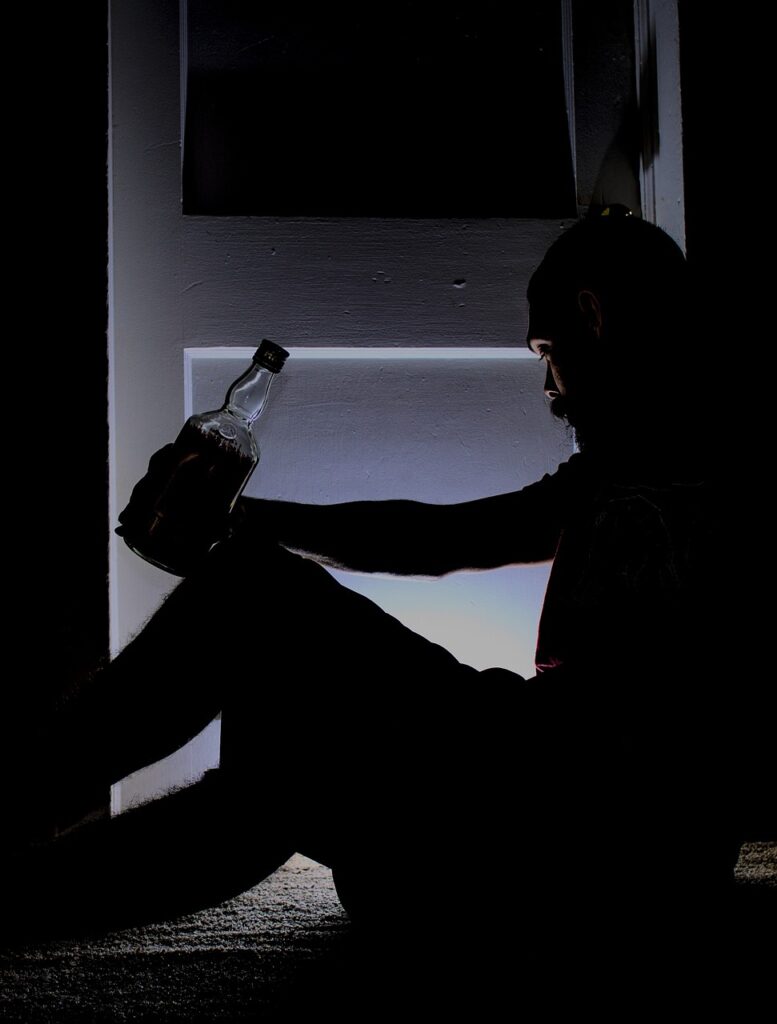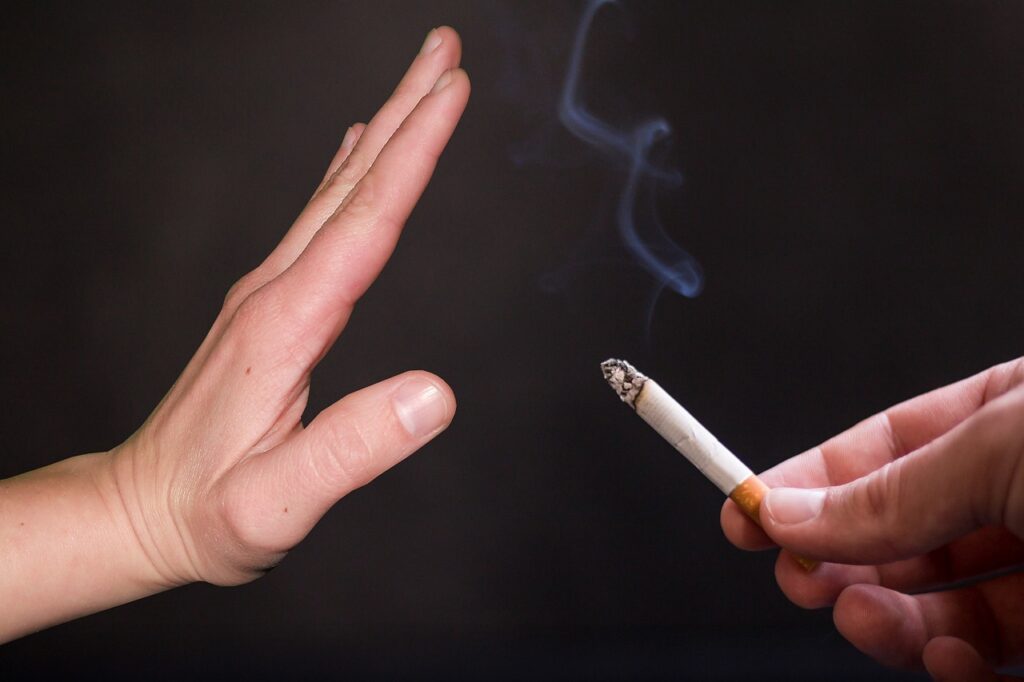Men, it’s time to face the brutal truth. Addiction is a relentless force that’s tearing through the lives of men like us, leaving destruction in its wake. I’ve seen it firsthand—both in myself and in countless others who’ve struggled to break free from the iron grip of substances like alcohol, nicotine, and pornography. But let me tell you this: there’s no challenge too great, no mountain too high if you’re willing to do the hard work. This article isn’t just about recognizing the enemy; it’s about grabbing it by the throat and taking back control of your life.

The Scope of Addiction in Men
Let’s get down to brass tacks. Men are hit harder by addiction than women, and that’s not just my opinion—that’s cold, hard fact.
Alcohol Addiction: Here’s a stat for you: 8.4 million men in the U.S. alone suffer from Alcohol Use Disorder (AUD). That’s 56% of all cases. Think about it—how many times have you reached for a drink to numb the pain or to forget the stress of the day? I’ve been there. A few years back, I was that guy who thought a couple of beers after work were just “unwinding.” Before I knew it, those couple of beers turned into a six-pack, then a case, until I couldn’t remember what sober felt like. The toll? Liver issues, strained relationships, and a life that felt like it was slipping through my fingers. If you’re drowning in alcohol, let this be your wake-up call.

Nicotine Addiction: Smoking. It’s not just a habit—it’s a full-blown addiction that’s killing men faster than you can light that next cigarette. In 2023, about 21% of adult men were still smoking. That’s more than double the number of women. I’ve watched strong, capable men, who could run a marathon without breaking a sweat, become winded climbing a flight of stairs because of this addiction. The truth is, nicotine addiction isn’t just a matter of choice; it’s a chemical dependency that rewires your brain. And the consequences? A 25% higher risk of cardiovascular disease, lung cancer, and worse.
Pornography Addiction: Now, this is a tough one to talk about, but it’s got to be said. We live in an age where pornography is as accessible as the weather report. Around 70% of men aged 18-34 visit a porn site at least once a month. But for some of us, once a month turns into once a day, and then it’s a problem—a real problem. Pornography might seem harmless at first, but let me tell you, it’s like a slow poison. It warps your perception of sex, relationships, and even yourself. I’ve known guys—good guys—who’ve lost their marriages, their self-respect, and their drive because they couldn’t step away from the screen. A 2021 study showed that daily porn users are 2.5 times more likely to report symptoms of depression. Don’t let that be you.

Other Addictive Substances: It’s not just the big three. Opioids, prescription drugs, marijuana—these are all traps waiting to ensnare you. Men are twice as likely as women to misuse prescription opioids. Think you’re just taking painkillers? Before you know it, you’re in a full-blown addiction, and getting out isn’t easy. But it’s not impossible, and we’ll get to that.
The Psychological Mechanisms Behind Addiction
Addiction isn’t just about willpower. It’s about brain chemistry, and understanding this is key to overcoming it. When you drink, smoke, or watch porn, your brain releases dopamine—the “feel-good” chemical. Over time, your brain gets hooked on this dopamine rush, and you need more and more of the substance to get the same effect. That’s addiction in a nutshell.
Stress and mental health play a huge role in this. Men are less likely to seek help for mental health issues—we’ve been taught to tough it out, to “man up.” But that only drives us deeper into the arms of addiction as we try to self-medicate our stress, depression, or anxiety. The first step to recovery is acknowledging that it’s not just about being strong—it’s about being smart.
10 Steps to Overcome Addiction
Acknowledge the Problem: You can’t fix what you won’t admit. I had to look myself in the mirror and say, “You’re an alcoholic.” That was the hardest thing I’ve ever done, but it was also the most liberating. Don’t hide from the truth—embrace it. Write it down, say it out loud, let it sink in. Only then can you start to change.
Seek Professional Help: You’re not alone, and you don’t have to do this alone. I had to swallow my pride and seek help from a therapist. Whether it’s a doctor, a therapist, or a support group like Alcoholics Anonymous, get the help you need. There’s no shame in admitting you need help; the shame is in refusing to get it.
Develop a Strong Support System: No man is an island. When I was deep in my addiction, I pushed everyone away. But the truth is, I needed them more than ever. Your family, your friends—they’re your lifeline. Build a network of people who will hold you accountable, who will lift you up when you’re down, and who won’t let you slip back into old habits.
Set Clear, Realistic Goals: Don’t try to conquer the mountain in one day. Set small, achievable goals. When I was quitting drinking, my first goal was just to get through one day without a drink. Then it was a week, then a month. Celebrate each victory, no matter how small. Success is built one step at a time.

Identify Triggers and Avoid Them: Know your enemy. For me, it was the bar down the street—every time I passed it, the urge to drink would hit me like a freight train. I had to take a different route home, avoid places where I knew I’d be tempted. Identify what triggers your addiction and find ways to steer clear of it.
Adopt Healthy Coping Mechanisms: You can’t just stop the addiction; you have to replace it with something positive. I took up running—it gave me something to focus on, something to strive for. Find a healthy outlet, whether it’s exercise, meditation, or a hobby that keeps your mind and body occupied.
Educate Yourself About Addiction: Knowledge is power. I read everything I could get my hands on about addiction—the science behind it, the stories of others who had overcome it. The more I understood, the more I realized that addiction wasn’t just a lack of willpower; it was a battle that could be won with the right tools.
Gradual Reduction and Replacement Strategies: For some addictions, going cold turkey isn’t realistic. When I quit smoking, I used nicotine patches and slowly reduced my intake. It wasn’t easy, but it was doable. Find a method that works for you, whether it’s tapering off or using substitutes like gum or patches.
Regular Monitoring and Check-ins: Don’t go it alone. Regular check-ins with a healthcare provider or therapist can make all the difference. They’ll keep you on track, help you troubleshoot when things get tough, and celebrate your progress with you.
Relapse Prevention Planning: Let’s be real—relapse happens. It’s not the end of the world, but you need a plan for when it does. I had a relapse plan in place: if I felt the urge to drink, I’d call a friend, go for a run, anything to keep me from giving in. Be prepared, and don’t beat yourself up if you stumble. Get back up and keep moving forward.

Conclusion
Men, the road to recovery is long and hard, but it’s a road worth traveling. You’ve read the facts, you’ve seen the dangers, and now you have the tools to fight back. Don’t let addiction define you—define yourself by the strength, resilience, and determination you show in overcoming it. Take the first step today. It’s not easy, but it’s the only way to reclaim your life. And trust me, if I can do it, so can you. Now get out there and make it happen.
Ultimate Healing Hidden Wounds: Overcoming Life Trauma Men Face.